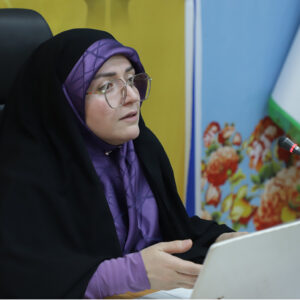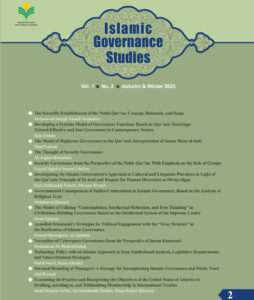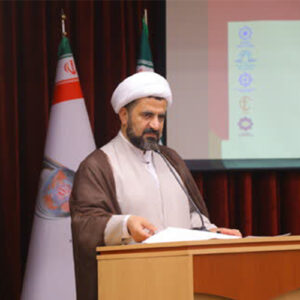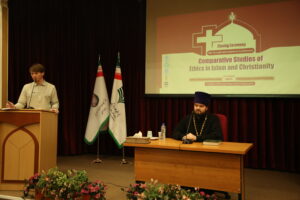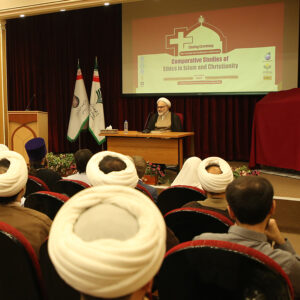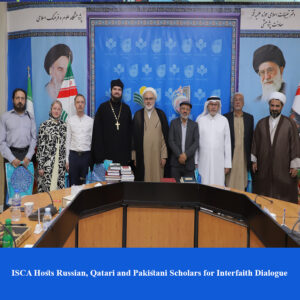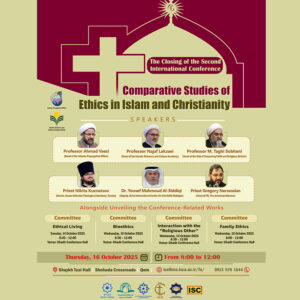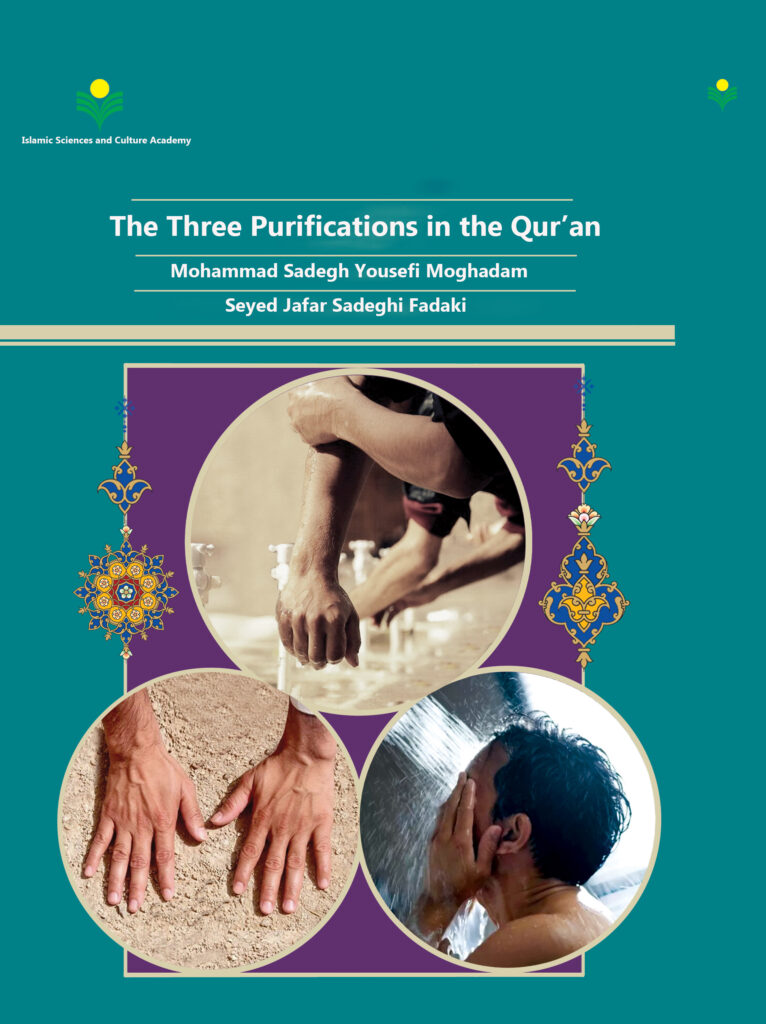The Three Purifications in the Qur’an
Authored by:
Mohammad Sadegh Yousefi Moghadam
Full professor, Department for Interpretation of the Qur’an, Research Center for Qur’anic Sciences and Culture, Islamic Sciences and Culture Academy, Qom, Iran.
& Seyed Jafar Sadeghi Fadaki
Assistant Professor, Department of Encyclopedias, Research Center for Qur’anic Sciences and Culture, Islamic Sciences and Culture Academy, Qom, Iran.
Keywords: The Qur’an, Purification, Wudu’, Ghusl, Tayammum.
Statement of the Problem
The Holy Qur’an is a comprehensive set of instructions and teachings that humans need to achieve worldly happiness and peace in the hereafter. Some of the mentioned teachings are the three Taharat (Purifications), which Allah Almighty has made these acts Wajib (obligatory) for doing some special acts of worship, such as saying prayers, touching the Qur’an, performing the obligatory Ṭawāf (circumambulation) of Allah’s house, and some other practices, and in some cases also are Mustahabb (recommended). However, the three mentioned issues need to be examined and explained from different aspects, including how to perform these purifications, the philosophy of performing these obligations based on Sharia (Sharia is a body of religious law that forms a part of the Islamic tradition based on scriptures of Islam, particularly the Quran and hadith.) and in Islam, and the most important Wajib and Mustahabb rulings. In this book, the mentioned issues have been examined and researched from the perspective of revelational teachings and interpretative narratives.
Primary and Secondary Questions
The main question in this research is, what is the purification of body and soul, which is considered as a condition for saying prayers, touching the Qur’an and performing Ṭawāf, and how and under what conditions are these purifications performed based on the teachings of revelation? The secondary questions of this research are, what does Wudu’ mean and what is the philosophy of this obligation in Sharia, its rulings and conditions from the perspective of the Qur’an? What is meant by ghusl, and what types, rulings and conditions does it have from the Qur’an’s point of view? What is the meaning of Tayammum and what are its rulings, conditions and customs based on Qur’anic teachings?
Objectives
Wudu’, Ghusl, and Tayammum are among the obligations that are common to all believers throughout their lives. Therefore, the main purpose of writing this book is to make Muslims familiar with the truth of the mentioned purifications from the perspective of the verses of the Qur’an and their duties when facing each of these obligations and by performing these duties based on the teachings of revelation, they will achieve inner and outer purity and, as a result, worldly and hereafter happiness.
Method
The research focuses on explaining the three purifications (Wudu’, Ghusl, and Tayammum) from the perspective of the verses of the Holy Qur’an, but for the complete explanation of the mentioned verses and the comprehensiveness of the discussion, in addition to referring to the Holy Qur’an, it’s been also referred to dictionary and terminological sources, interpretations, narrative sources, and Shia and Sunni jurisprudence books. This study has been done by collecting data from the mentioned written sources as well as computer systems and scientific software with descriptive and analytical data processing method.
Structure
This research has been written in three chapters. The first chapter is devoted to Wudu’, in addition to the concept of Wudu’ and referring to its types, it deals with the background of this practice in the previous Sharias and its Tashri’ (religious legalization) in Islam, the importance and position of Wudu’, the wisdom of making Wudu’ as obligatory in Islam, and some jurisprudence rulings on this topic from the perspective of the Qur’anic verses and interpretive narrations. Ghusl has been addressed in the second chapter, and after discussing the concept and mentioning the types of Ghusls, this chapter discusses the Tashri’of this practice in the previous Sharias and Islam, the philosophy of Tashri’, and some of the most important rulings of jurisprudence. The third chapter is also dedicated to Tayammum and after studying the concept of the subject, it deals with the wisdom of the jurisprudence of Tayammum, the background of the subject in previous Sharias and some jurisprudential issues of this topic.
Novelty
So far, many books and articles have been written on Wudu’, Ghusl, and Tayammum by Islamic jurists and researchers, and in most of the mentioned sources, these issues have been examined only from the point of view of jurisprudence and narratives, but in this research, on the one hand, the mentioned topics have been examined and explained based on the Qur’anic verses and interpretive narratives and on the other hand, the explanation of these issues is not limited only to the sources of jurisprudence, narratives and interpretation of the Imamiya. Moreover, jurisprudential, narrative and interpretive sources of Sunnis have also been used. Therefore, in addition to the followers of the Imamiya denomination, followers of other Islamic denominations can also benefit from this research.
Results
Many results have been obtained from all the topics discussed in this research, some of the most important of which are as follows:
Allah has made Wudu’, Ghusl, and Tayammum obligatory to achieve specific goals such as removing physical impurities, removing badness and inner impurities, removing boredom, completing blessings on servants of Allah, and thanking God by the servants. Among the three obligations mentioned, Wudu’ and Ghusl are not specific to the Islamic Shari’ah, but since the beginning of human creation, God has religiously legislated it for Adam and his progeny and the followers of the previous divine Sharia except that according to some narratives, doing Tayammum instead of Wudu’and Ghusl is one of the specifics of Islamic Shari’a and there is no such a thing in other Sharias. The mentioned obligations have such importance and position that the Holy Qur’an, in addition to pointing out these obligations, has also mentioned many of their most important rulings and rituals in numerous verses. The jurists of different Islamic denominations, based on the verses and narratives, agree on the principle of these obligations and some of the main rulings, but their views differ on the secondary rulings and many details of these obligations.

